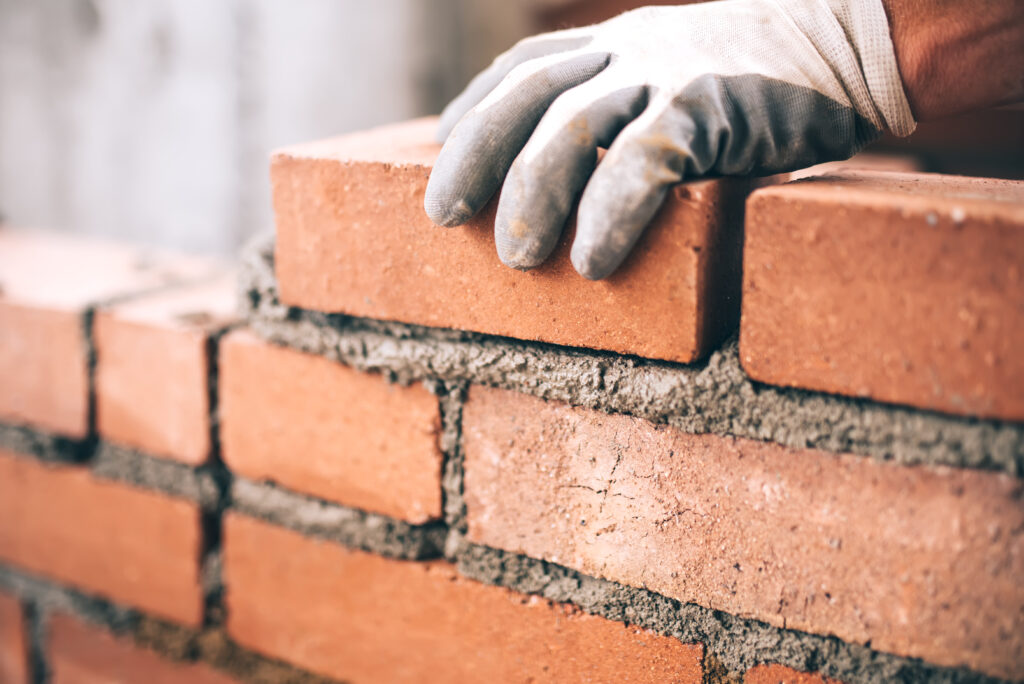Be sure to attend the turn of the tide When the sea gives way to a staff When a pebble wrecks an army’s pride And an elephant stops in its tracks
Archives for June 2022
Filter
Basmala: the sieve Screening the soul
Creation – A Cinquain
You may Not know it but Even the sunlight streams In a bit differently every Morning
Armed
Sheathe your anger well And as it is with weapons Please use sparingly
Thought Masonry
During the Tafsir of verses 12-13 of Surah Hujurāt this past Sunday, Shaykh Amin built his commentary, as is his wont, the way a seasoned brickmason builds a wall.
Every word in his preface was necessary. Like all Shaykh Amin lectures, the first few minutes transpired in preparation, background, context. While the uninitiated listened carefully and absorbed what they knew they would need in order to process what was yet to come, the students of Tafsir in the audience took in his method along with the content, much in the way a mason’s apprentice watches the master at work: Spread out the cement… Lay down the brick… Line it up… Knock it gently into place… Shave off the excess….

To me, a member of the former category, the entire process was fairly consistent with every other Shaykh Amin talk, the simple anatomy of which is anything but simplistic. Briefly put, it comprises a comprehensive laying down of all prerequisite knowledge. Once that is done, a clear, concise and sharp interpretation emerges from the built structure.
Like a professional mason, the scholar here takes his time with preparation that is critical to the insightful observations that follow. In this particular session, we heard things such as the following.
- Giving up on the ummah, and how that is the “greatest pollutant” amongst Muslims
- Reading wahy and the destructive act of reading it in the language of human rights – wahy must be read in the context and language of wahy
- the importance of including the Ākhirah during a reading of wahy
- The reason for human diversity, that we may recognize that we are different from each other
But I really just want to focus on one little point that the Shaykh raised in his commentary. He stated it quite plainly, and I would have missed it had I not paid close attention to his preface.
The prophet (S) dismantled the aristocracy of the Quraysh.
The statement is related to how racism and classism were built into the hierarchical structure of Makkan society. Even a free man like Bilal (R), in the eyes of the Makkan Quraysh, was not divested from his former state of being a slave. Apart from that, he was a black man. So when the prophet (S) asked Bilal (R) to stand atop the Ka’bah and give the Adhan, the Quraysh were appalled that “a slave” would summon them, the honored ones, “toward felicity and success”.
The word “dismantled” caught my attention in particular. In our fickle times of self-aggrandizing woke culture marked with destructive feel-good verbs such as smash, destroy, and burn, a word like dismantle stands out. It is a sophisticated word choice. Originally meant to remove a mantle or cloak, it has also come to mean to take something apart, usually without destroying its constituent parts.
The prophet (S) could have torn down the aristocracy. He could have smashed it to pieces by addressing the aristocrats and telling them they must give up their airs. Instead, the prophet (S) with the baseerah of his prophethood, recognized the parts that the Makkan aristocracy was built upon – essentially, they were attributes of honor, dignity and lineage. He saw these attributes, components if you will, as worthy of preservation, deserving of respect. The ugly monolith that had been built from these components was not to be conflated with them. One does not cut one’s nose to spite one’s face. Hence, the need to dismantle, so that the components themselves are not discarded or belittled, but rather put to use. In fact, the prophet (S) gave authority to the Quraysh when he said, “Leaders are from the Quraysh.”
And what better way to begin that process by asking a former slave to ascend the revered house of God, and to shout out, even shout down at the city, from his elevated position: Come to Salaah. Come to Success.
What better way to tell the Makkan aristocracy, that when comes time to bow your head before your Creator, the choice of those who lead will be a function of their piety, not their social status.
And Allah knows best.
Lilies and Roses
When you see another’s blessing Remember no one knows If they would give it up for one Thin slice of your repose There’s a swamp beneath the lily And thorns about the rose
Clarity
May the power of His Nūr dispel The darkness of despair As hands and feet and lips compel Salaam upon the air
Drown
Put all your worries away To seize the rest of this day And drown yourself in durūd Just drown yourself in durūd
Comfortable
When days get hot with work and worry Cool yourself by His Name on your tongue When nights get cold with lonesome laughter Shroud yourself in sweet salawaat
Fresh Beginnings
Fresh beginnings Everywhere Feel the dew In the morning air Brown turns green Verdant scene Peony stalk bowed To humming pair Fresh beginnings Everywhere Start again Off your chair